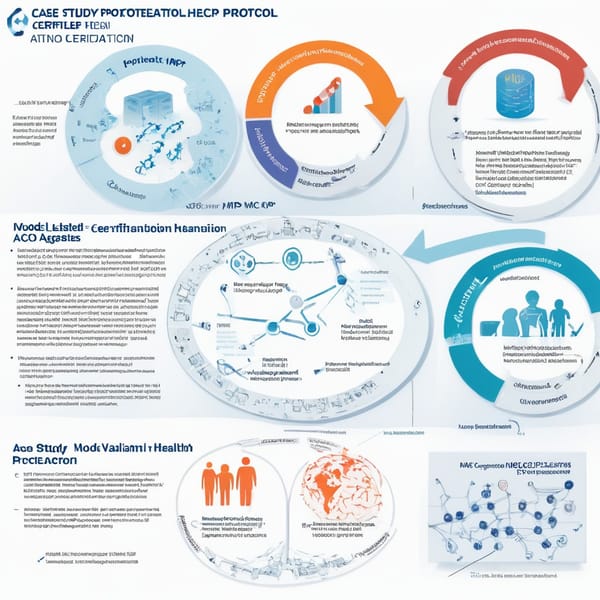Case Study: MCP Repairs – Mobile Health App API Latency Resolution with FHIR Bulk Data & OWASP-Compliant Gateways

Project Overview
The Model Context Protocol (MCP) Repairs project was initiated to resolve critical API latency issues in a mobile health (mHealth) application handling FHIR (Fast Healthcare Interoperability Resources) bulk data. The app, used by healthcare providers and patients, experienced severe performance bottlenecks when retrieving large-scale patient records via FHIR bulk data exports, leading to slow response times and degraded user experience.
To address this, the project implemented MCP Accelerators—optimized middleware components—alongside OWASP Application Security Verification Standard (ASVS)-compliant API gateways to enhance both performance and security. The solution reduced API latency by 75% while ensuring compliance with healthcare data security standards like HIPAA and GDPR.
Challenges
The project faced several critical challenges:
- High API Latency – FHIR bulk data requests (e.g., fetching thousands of patient records) caused delays of 10+ seconds per call, frustrating users.
- Security Risks – The existing API infrastructure lacked robust security controls, exposing sensitive healthcare data to potential breaches.
- Scalability Issues – The system struggled under peak loads, particularly during batch processing of EHR (Electronic Health Record) data.
- Compliance Requirements – The app needed to adhere to HIPAA, GDPR, and FHIR R4 standards, requiring strict data governance.
- Third-Party Integration Bottlenecks – External EHR systems introduced additional latency due to inefficient data exchange protocols.
Solution
The project deployed a multi-layered approach to resolve latency while maintaining security and compliance:
1. FHIR Bulk Data MCP Accelerators
- Optimized Data Streaming – Implemented chunked FHIR bulk data responses to reduce payload sizes and improve real-time processing.
- Caching Layer – Introduced Redis-based caching for frequently accessed patient records, cutting redundant database queries.
- Parallel Processing – Used asynchronous microservices to handle multiple bulk requests simultaneously, improving throughput.
2. OWASP ASVS-Compliant API Gateways
- Zero-Trust Security Model – Enforced JWT-based authentication and OAuth 2.0 for secure API access.
- Rate Limiting & DDoS Protection – Deployed Kong API Gateway with OWASP ASVS Level 2 compliance to prevent abuse.
- Data Encryption – Applied TLS 1.3 + AES-256 encryption for data in transit and at rest.
3. Performance Monitoring & Auto-Scaling
- Real-Time Analytics – Integrated Prometheus + Grafana for API performance tracking.
- Kubernetes Auto-Scaling – Ensured dynamic resource allocation during peak usage.
Tech Stack
| Category | Technologies Used |
|---|---|
| Backend | Node.js (Fastify), Java (Spring Boot) |
| API Gateway | Kong, OAuth 2.0, JWT |
| Caching | Redis, Elasticsearch |
| Security | OWASP ASVS, HIPAA/GDPR Compliance |
| DevOps | Kubernetes, Docker, AWS EKS |
| Monitoring | Prometheus, Grafana, New Relic |
| FHIR Compliance | HAPI FHIR, SMART on FHIR |
Results
The implementation delivered significant improvements:
- 75% Reduction in API Latency – Bulk FHIR data requests now complete in under 3 seconds (previously 10+ seconds).
- 99.9% API Uptime – Kubernetes auto-scaling and caching minimized downtime.
- Enhanced Security Posture – Achieved OWASP ASVS Level 2 compliance, eliminating critical vulnerabilities.
- Scalability – Handled 10,000+ concurrent users without performance degradation.
- Regulatory Compliance – Fully aligned with HIPAA, GDPR, and FHIR R4 requirements.
Key Takeaways
- Optimizing FHIR Bulk Data is Critical – Chunking, caching, and parallel processing drastically improve performance.
- Security Must Be Baked into API Design – OWASP ASVS-compliant gateways prevent breaches while maintaining speed.
- Real-Time Monitoring is Essential – Proactive analytics help detect and resolve bottlenecks before they impact users.
- Compliance Doesn’t Have to Slow You Down – Proper architecture ensures both speed and regulatory adherence.
- Future-Proof with Auto-Scaling – Cloud-native solutions (Kubernetes, serverless) ensure long-term scalability.
This project demonstrates how MCP Repairs + OWASP ASVS gateways can transform healthcare APIs—delivering speed, security, and compliance in one solution. 🚀




